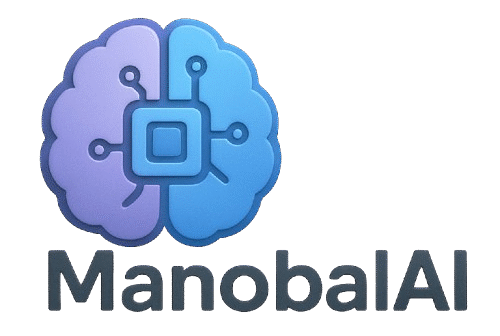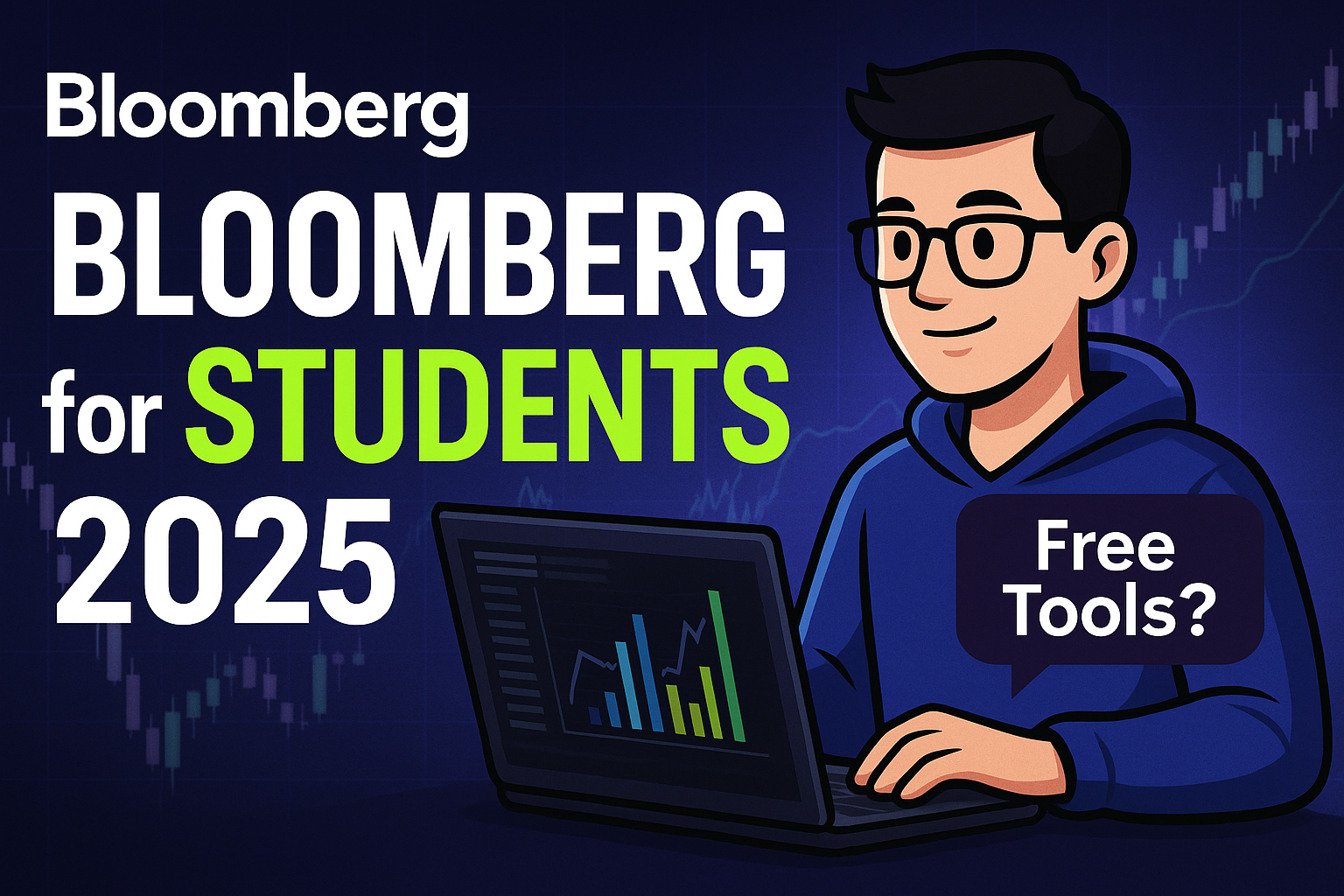Introduction: Why Bloomberg Isn’t Just for Wall Street Anymore
bloomberg for students & learners in 2025 : When most people hear “Bloomberg,” they think of stock markets, billionaires, or Wall Street traders glued to their screens. But in 2025, Bloomberg is becoming an essential tool for students, educators, and lifelong learners across the globe.

Whether you’re studying business, economics, journalism, data science, or public policy, the Bloomberg ecosystem offers real-time access to global data, news, and analytics tools that help bridge the gap between classroom theory and real-world application.
In this post, we’ll explore how students and learners worldwide are using Bloomberg in 2025 to gain an edge, develop insights, and get career-ready.
What Is Bloomberg?
At its core, Bloomberg is a technology-driven platform for financial data, global news, analytics, and research. It includes:
- The Bloomberg Terminal – A subscription-based platform for live data, news, analytics, and more.
- Bloomberg News – One of the largest international news organizations.
- Bloomberg Intelligence – In-depth sector research.
- Bloomberg NEF (New Energy Finance) – Specialized climate and energy data.
- Bloomberg Law, Government, and Tax – Legal and policy-focused services.
- Bloomberg APIs & Data Feeds – Used in machine learning, finance, and research projects.
While traditionally used by professionals, many universities and institutions now provide access to Bloomberg for educational purposes.
Why Students Use Bloomberg in 2025
| Purpose | How Bloomberg Helps |
|---|---|
| Research & assignments | Real-time and historical data |
| Learning financial markets | Practice with real stock market tools |
| Analyzing economic trends | Access macroeconomic dashboards |
| Building data skills | Visualizations, charts, APIs |
| Preparing for careers | Bloomberg Market Concepts (BMC) certification |
| Writing papers | Trusted sources, verified citations |
| Staying informed | Global news, policy updates |
1. Bloomberg Market Concepts (BMC): Your First Step
One of the most popular starting points for students is the Bloomberg Market Concepts (BMC) course.
It’s a self-paced, 8-10 hour e-learning program that covers:
- Economics
- Currencies
- Fixed Income
- Equities
- ESG (Environmental, Social, Governance) Investing
BMC helps students gain practical knowledge and earn a certificate that is highly valued by recruiters in finance, consulting, and business.
Pro Tip: Many universities offer free BMC access to enrolled students.
2. Real-Time Market Data for Classroom Learning
Instead of using outdated textbooks, students can now:
- Track live stock prices
- Monitor global indices
- Explore historical price trends
- Compare bond yields
- Follow central bank decisions
This is especially useful for students in:
- Finance and Investment
- Economics
- Business Administration
- International Trade
- Public Policy
Use Case: An economics student at LSE used Bloomberg to analyze the Bank of Japan’s yield curve policy in real time — far beyond classroom material.
3. Research and Thesis Projects with Verified Data
Students writing dissertations or research papers can use Bloomberg for:
- Company fundamentals (e.g., revenue, profit, management)
- Country macroeconomic data (e.g., inflation, GDP, unemployment)
- Global trade statistics
- Sector-specific analysis (e.g., renewable energy, fintech, biotech)
All data is trusted, up-to-date, and citable, which makes it perfect for academic integrity.
Bonus: Bloomberg integrates with Excel and academic citation tools.
4. Learning Data Visualization & Analytics
Bloomberg isn’t just about reading numbers — it helps you visualize trends and patterns.
You can:
- Create professional-quality graphs and charts
- Export datasets to Excel or Python
- Use built-in analytics tools
- Conduct scenario analysis
This is perfect for students learning:
- Data Science
- Business Analytics
- Quantitative Finance
- Statistics
Example: A data science student used Bloomberg’s commodity data to forecast food price trends using regression models.
5. ESG and Climate Change Education
Sustainability is no longer optional — and Bloomberg NEF gives students access to:
- Global carbon emissions data
- ESG scores of corporations
- Green bond markets
- Clean energy investments
- Climate risk analytics
This is essential for:
- Environmental Studies
- Sustainability Management
- Public Policy
- Development Studies
Real-world application: A student researching electric vehicles used Bloomberg NEF to track global lithium demand trends from 2010 to 2025.
6. Global News and Current Affairs
Bloomberg News is fast, reliable, and global. As a student, you can:
- Stay informed on business, politics, and world affairs
- Follow curated feeds for your area of study
- Track market-moving events in real time
- Read thought leadership from top experts
This sharpens your awareness and helps build habits of informed decision-making.
7. Simulations and Investment Clubs
Many colleges now run Bloomberg trading competitions, investment clubs, or mock portfolios using the Terminal.
Students can:
- Create and manage virtual portfolios
- Compete in real-time market games
- Learn risk management
- Practice trading strategies (stocks, forex, crypto)
It’s hands-on, competitive, and practical.
8. Career Prep and Internship Opportunities
In 2025, recruiters are increasingly looking for students who can work with data, tech, and information tools.
With Bloomberg experience, students can apply for roles in:
- Investment Banking
- Asset Management
- Economic Consulting
- Journalism
- Data Analysis
- ESG Reporting
Also, Bloomberg itself recruits students worldwide for internships and graduate roles.
9. Interdisciplinary Learning Made Possible
Bloomberg is useful not just for finance majors but for students in:
- Journalism – Real-time data for news reports
- Law – Bloomberg Law for case tracking
- Public Policy – Economic modeling and forecasting tools
- Engineering – Energy sector analysis
- Healthcare – Biotech and pharma trend tracking
In 2025, learning is interdisciplinary, and Bloomberg helps you cross boundaries.
10. How to Get Access to Bloomberg as a Student
University Bloomberg Lab
Many universities have dedicated Bloomberg Labs with terminals.
Shared Terminal Access
Schedule time at your school’s finance, policy, or data center.
Remote Access (Limited)
Some institutions provide remote Bloomberg access post-COVID.
Bloomberg.com & Mobile App
Even without a terminal, you can use Bloomberg’s website and app for news and limited data.
Bloomberg vs. Other Student Platforms
| Platform | Strengths | Limitations |
|---|---|---|
| Bloomberg | Real-time, professional-grade data, BMC certification | Expensive without institutional access |
| Yahoo Finance | Free, easy for beginners | Limited depth, delayed data |
| TradingView | Great charts, community insights | Less academic focus |
| Statista | Good for general stats | Lacks real-time updates |
| JSTOR | Academic journals | No live data or tools |
Conclusion: If you want to experience the tools used by professionals, Bloomberg is your best bet.
People Also Ask (FAQs)
Q1: Is Bloomberg free for students?
No, but many universities offer free access via labs or student portals. Some schools cover the Bloomberg Market Concepts (BMC) fee.
Q2: Can I learn Bloomberg without a finance background?
Yes! Bloomberg’s training tools and guides are beginner-friendly. BMC is a great place to start.
Q3: Does Bloomberg help with job placement?
Indirectly, yes. Having Bloomberg skills and certifications on your resume boosts your chances in data, finance, consulting, and journalism.
Q4: Can I use Bloomberg for my thesis or dissertation?
Absolutely. Bloomberg provides trustworthy, citable data for academic projects.
Final Thoughts: A Smart Investment in Learning
In 2025, education is more connected to the real world than ever. Employers aren’t just looking for degrees — they want practical skills, data literacy, and global awareness.
By using Bloomberg, students and learners worldwide can develop:
- Real-time decision-making skills
- Research abilities backed by data
- Career-ready certifications
- An edge in competitive markets

